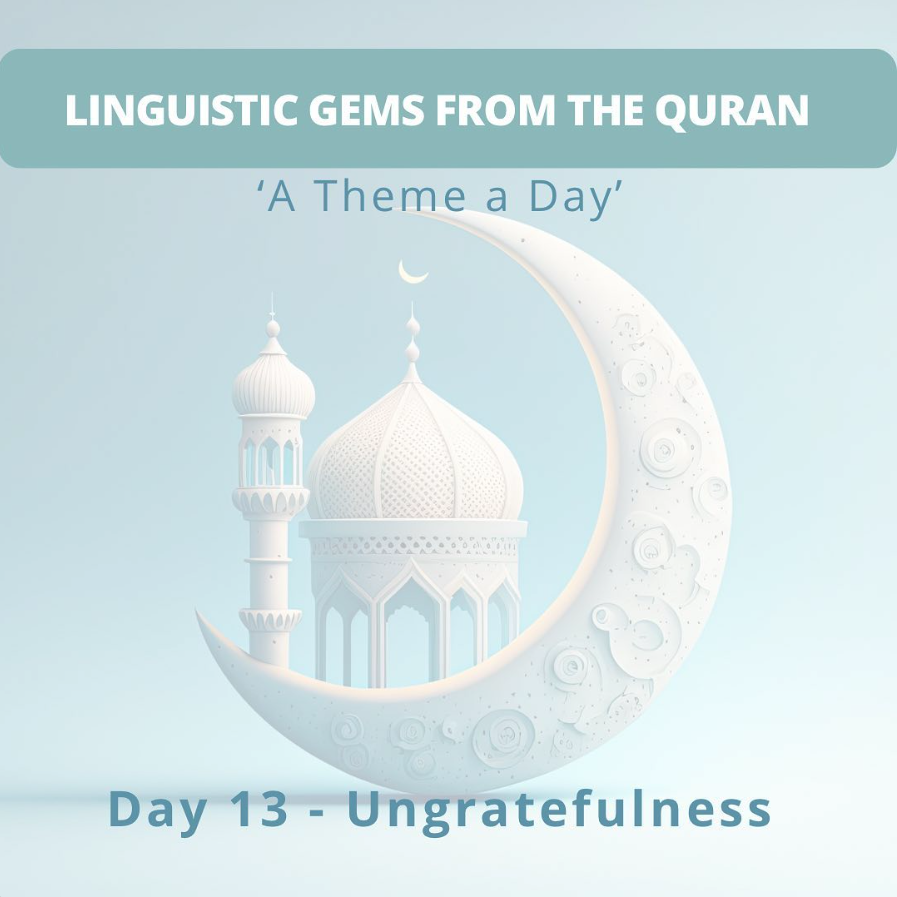
The Quran is a rich source of guidance and wisdom, and its language is nuanced and layered with meaning.
One example of this is the use of different words to convey the concept of ungratefulness. While derivatives from the root ك ف ر, such as كَفورٌ kafoor and كَفّارٌ kaffaar, are the most common words used to refer to ungratefulness in the Quran, in one instance, in al-’Aadiyaat verse 6, Allah uses the word كَنودٌ kanood,
إِنَّ ٱلْإِنسَـٰنَ لِرَبِّهِۦ لَكَنُودٌۭ
Indeed, man is ungrateful to his Lord
According to scholars, the كَنودٌ kanood is the one who actively enumerates their calamities and afflictions and does not acknowledge their blessings.
This is a profound message because it suggests that if ungratefulness is not just a passive state of mind but an active one – that it’s not just about not being grateful; it’s about actively counting one’s misfortunes and overlooking one’s blessings – then the same must also be said for gratitude.
In Surah A’raaf, verse 58, Allah provides further insight into the nature of ungratefulness,
وَٱلْبَلَدُ ٱلطَّيِّبُ يَخْرُجُ نَبَاتُهُۥ بِإِذْنِ رَبِّهِۦ ۖ وَٱلَّذِى خَبُثَ لَا يَخْرُجُ إِلَّا نَكِدًۭا ۚ كَذَٰلِكَ نُصَرِّفُ ٱلْـَٔايَـٰتِ لِقَوْمٍۢ يَشْكُرُونَ
And the good land – its vegetation emerges by permission of its Lord; but that which is bad – nothing emerges except sparsely, with difficulty. Thus do We diversify the signs for a people who are grateful.
In this verse, Allah has expressed the meaning of ‘sparsely, with difficulty’ using the word نَكِدًۭا – which comes from the root ن ك د -the same root letters as كنود, but in a different order. This root means ‘to withhold, to refuse what is asked’, and the relationship between these two roots – albeit being in a different order – should become apparent; the كنود is the one who withholds their gratitude, and is therefore ungrateful.
These two verses are the only instances of either root being used in the Qur’an, and it is therefore fitting to make links between their meanings. We can use these links to shed some light on the possible allegorical meaning of the verse and to gain a deeper understanding of the concept of ungratefulness and how it manifests in our lives, particularly when we realise the beautiful juxtaposition with the ending of the verse where Allah specifically mentions gratitude.
And Allah knows best
